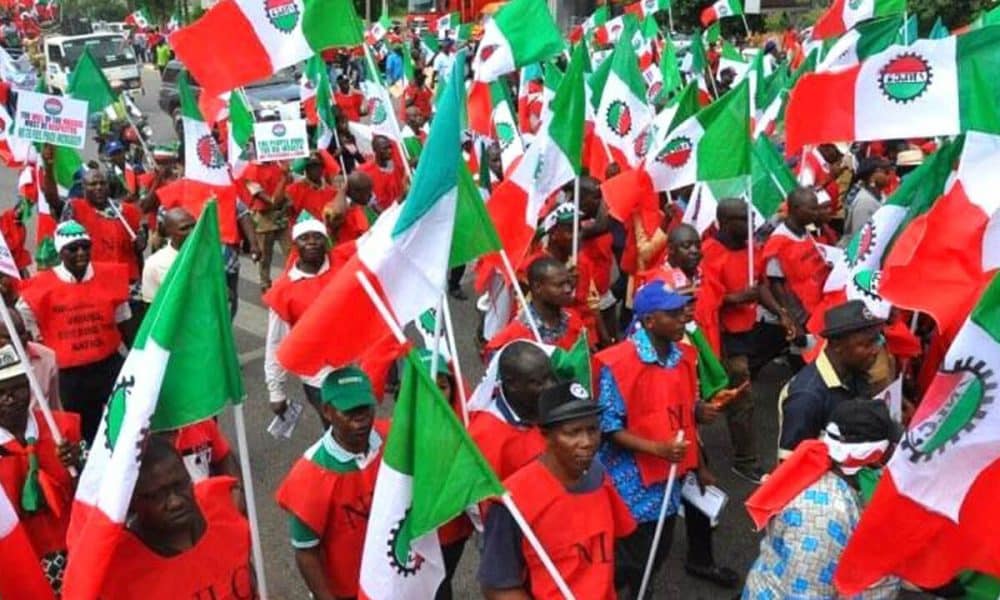NLC Declares Support for NUPENG Against Dangote Refinery, Issues Key Demands for Workers’ Rights
In a bold show of solidarity amid escalating tensions in Nigeria’s oil and gas sector, the Nigeria Labour Congress (NLC) has thrown its weight behind the National Union of Petroleum and Natural Gas Workers (NUPENG) in their dispute with the Dangote Refinery. The declaration, made during an emergency meeting in Lagos on September 6, 2025, comes as NUPENG accuses the refinery of unfair labor practices, including the denial of union recognition and the casualization of workers. The NLC, Africa’s largest labor federation representing over 4 million workers, has issued a series of demands, warning of potential nationwide industrial action if the issues remain unresolved. This development underscores the growing friction between organized labor and private conglomerates in Nigeria’s push for energy self-sufficiency.
The core of the conflict revolves around allegations that Dangote Refinery, the world’s largest single-train refinery located in Lekki Free Trade Zone, has refused to allow NUPENG to unionize its workforce and has instead employed contractors who hire workers on temporary contracts without benefits. NUPENG, which represents over 30,000 workers in the downstream petroleum sector, claims this violates Nigerian labor laws and the International Labour Organization (ILO) conventions. In a joint statement, NLC President Joe Ajaero and NUPENG General Secretary Princewill Chisa Enyiegbulam detailed the grievances, including the dismissal of union sympathizers and the imposition of exploitative working conditions at the $19 billion facility. Verified reports from the meeting indicate that the refinery’s operations, which began full production in early 2025, have been disrupted by sporadic protests, with workers demanding immediate recognition of their union and the regularization of all casual staff. The NLC has given the refinery a 14-day ultimatum to comply, threatening to mobilize affiliates across the country if unmet.
Key demands outlined in the statement include: (1) Full recognition of NUPENG as the collective bargaining agent for all refinery employees; (2) Conversion of all contract and casual workers to permanent status with full benefits, including pensions and health insurance; (3) Payment of outstanding allowances and the implementation of a living wage in line with the national minimum wage of ₦70,000; (4) An end to anti-union activities, such as surveillance and intimidation of workers; and (5) The establishment of a tripartite committee involving the government, labor, and management to oversee compliance. “The Dangote Refinery cannot ride on the back of exploited workers to achieve its billionaire dreams,” Ajaero declared at the press conference. “We stand with our brothers and sisters in NUPENG because this is not just about oil; it’s about the dignity of every Nigerian worker.” Enyiegbulam added, “Dangote’s refusal to engage in good faith bargaining is a direct assault on our rights. We will not sit idly while our members are treated as disposable.”
To contextualize this standoff, it’s essential to trace the roots of the dispute within Nigeria’s evolving energy landscape. The Dangote Refinery, spearheaded by Africa’s richest man Aliko Dangote, represents a milestone in reducing the country’s dependence on imported refined petroleum products, which previously cost billions annually. Commissioned in May 2023 and reaching full capacity by January 2025, the 650,000-barrels-per-day facility has been hailed by the federal government as a catalyst for economic growth, with President Bola Tinubu attending its launch. However, labor issues have simmered since construction, with reports of poor safety standards and wage disputes emerging as early as 2024. NUPENG’s campaign gained traction after a July 2025 incident where over 200 workers were allegedly laid off for attempting to form a union chapter. This echoes broader challenges in Nigeria’s labor sector, where casualization affects up to 80% of the workforce in private industries, according to ILO estimates. The NLC, which led nationwide strikes in 2023 over fuel subsidy removal, has a history of intervening in sectoral disputes, often aligning with affiliates like NUPENG to pressure both private firms and the government. The refinery’s management, in a brief response, denied the allegations, stating it complies with all labor laws and employs workers through licensed contractors to ensure efficiency.
Reactions have been swift and polarized. The Trade Union Congress (TUC), another major labor body, has endorsed the NLC’s position, calling for government intervention to prevent escalation. Civil society groups like the Socio-Economic Rights and Accountability Project (SERAP) have urged the Ministry of Labour and Employment to investigate, warning that unresolved disputes could disrupt fuel supply chains at a time when global oil prices are volatile. On the business front, the Manufacturers Association of Nigeria (MAN) expressed concerns over potential strikes impacting industrial output, while Dangote Industries Limited has yet to issue a detailed rebuttal beyond its initial denial. Analysts, including Dr. Biodun Baiyewu from the Lagos Business School, noted, “This is a test for corporate social responsibility in Nigeria’s private sector. Dangote’s empire thrives on government support, but ignoring labor rights could tarnish its legacy and invite regulatory scrutiny.”
The possible ramifications of this support declaration are significant, potentially leading to widespread disruptions in Nigeria’s petroleum distribution if the ultimatum lapses on September 20. A NLC-backed strike could halt refinery operations, affecting fuel availability and exacerbating inflation, which stands at 34.2% as of August 2025. On the positive side, resolution might set a precedent for better labor practices in mega-projects, encouraging unionization and fair wages. Next steps include scheduled negotiations mediated by the Industrial Court of Nigeria, with the Ministry of Labour expected to convene stakeholders by September 10. Advocacy groups are mobilizing online campaigns under #JusticeForNUPENGWorkers, while international observers like the ILO monitor for compliance with global standards.
In conclusion, the NLC’s unwavering support for NUPENG against Dangote Refinery amplifies a critical fight for workers’ rights in Nigeria’s vital energy sector, blending economic ambition with social justice. As demands for union recognition and fair employment echo across the nation, the takeaway for stakeholders is clear: Sustainable progress demands equitable partnerships, lest short-term gains yield long-term unrest.
